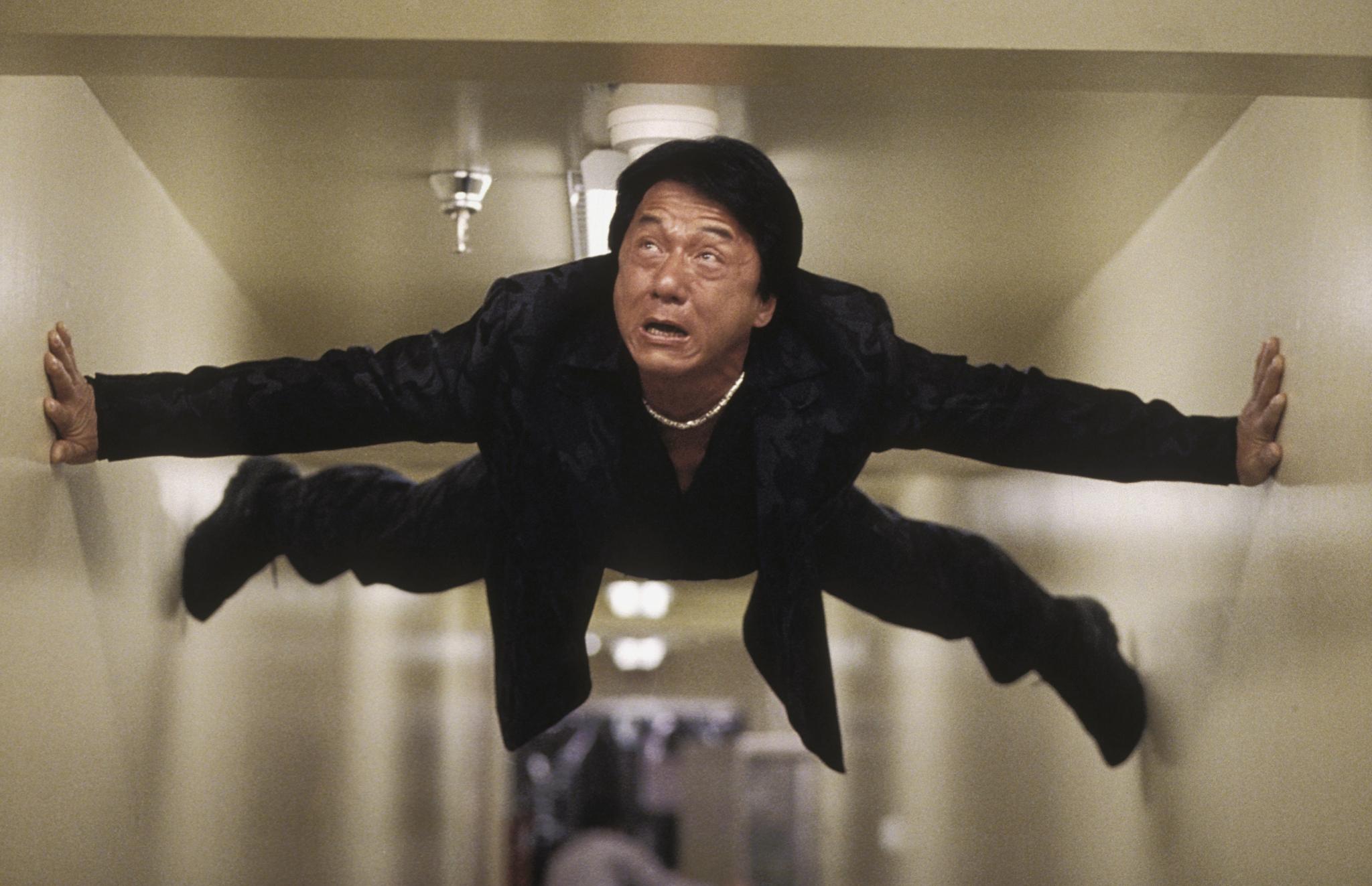Re-evaluating Jackie Chan's Filmography: Where His Most Powerful Character Unexpectedly Emerged

Table of Contents
The Early Years: Establishing the Action-Comedy Icon
The "Drunken Master" Era and its Impact
Jackie Chan's early career in Hong Kong cinema solidified his unique brand of action-comedy. Films like Drunken Master (1978) and Snake in the Eagle's Shadow (1978) showcased his innovative acrobatic fighting style, seamlessly blending exhilarating martial arts sequences with slapstick humor. These early Jackie Chan movies established the character archetype: the mischievous underdog who triumphs through wit and agility.
- Evolution of Style: Chan's style moved beyond traditional kung fu films, incorporating comedic timing and improvisational elements into his fight choreography.
- Comedic Elements: The use of slapstick, witty dialogue, and self-deprecating humor became a defining feature of his persona.
- Initial Character Archetypes: These early roles established Chan as a likable, resourceful hero with a penchant for getting into (and out of) trouble.
Hollywood Transition and the Shift in Character Dynamics
Chan's successful transition to Hollywood brought about a shift in his character dynamics. Films like Rumble in the Bronx (1996) and Rush Hour (1998) adapted his style for Western audiences, maintaining the action-comedy formula but adjusting the tone and storytelling to appeal to a global market. This period saw him become an international star, but the characters, while charismatic, often lacked the depth of his earlier Hong Kong roles.
- Adaptation to Western Audiences: The comedic elements were amplified, and the storylines were often simpler and more straightforward than his earlier Hong Kong work.
- Comedic Timing Refined: His mastery of comedic timing remained a constant, though often serving to highlight the action rather than to explore complex character emotions.
- Cultural Adaptation: The shift involved navigating cultural differences and adjusting his persona to fit the expectations of Western audiences.
Beyond the Stunts: Exploring Emotional Depth in Jackie Chan's Roles
The Underappreciated Nuances of Chan's Performances
While often celebrated for his physical prowess, Jackie Chan's acting has often been underappreciated. Beneath the surface of the comedic exterior, glimpses of vulnerability and nuanced emotion emerge. Careful observation reveals moments of genuine sadness, quiet determination, and even fear, moments often obscured by the high-octane action surrounding them.
- Vulnerability in "Police Story": The series shows glimpses of Chan's characters struggling with inner demons and personal sacrifices.
- Sadness in "Project A": The emotional weight of his character’s responsibility and loss is subtly conveyed in certain scenes.
- Dramatic Potential: Despite being predominantly known for action comedy, his performances hint at a deeper dramatic potential.
The Emergence of the "Powerful Character": Lee in Police Story (1985)
The character of Sergeant Chan Ka-Kui (often shortened to "Lee" in English-language media) in Police Story represents a powerful evolution in Chan's acting. This role marks a significant departure from his earlier comedic roles, showcasing a character driven by intense loyalty, unwavering determination, and a profound sense of justice. His fight against corruption is deeply personal, and the emotional weight of his responsibilities is palpable.
- Backstory and Motivations: Lee's dedication stems from his strong sense of duty and his desire to protect the innocent.
- Emotional Depth: The film doesn't shy away from depicting Lee's physical and emotional exhaustion, his vulnerability, and his deep concern for others.
- Powerful Performance: Chan's portrayal of Lee is a masterclass in controlled intensity, conveying both unwavering resolve and underlying vulnerability.
Analyzing the Impact of this Powerful Character on Chan's Legacy
Re-evaluating Critical Reception in Light of this Character's Depth
The critical reception of Police Story, and Lee's character in particular, often highlights the film's innovative action sequences, but the emotional depth of the story is sometimes overlooked. However, re-evaluating Jackie Chan's filmography with Lee's character in mind allows for a fresh perspective on the emotional range he's capable of displaying. This powerful character highlights the versatility of the actor behind the stunts.
- Critical Acclaim for Action: The film’s innovative action scenes are regularly praised.
- Underappreciated Emotional Depth: The emotional nuances of the story, and Lee's personal struggles, often receive less attention.
- Impact on Viewing Chan's Filmography: Considering Lee's complexity compels a re-evaluation of Chan’s range as an actor.
The Character's Lasting Influence on Subsequent Roles
While not explicitly mirroring Lee, a closer look at Chan's subsequent roles reveals subtle echoes of the emotional depth displayed in Police Story. The characters exhibit a greater level of maturity, internal conflict, and a deeper sense of responsibility. This suggests that Lee’s powerful character served as a significant turning point, subtly influencing his approach to acting in later roles.
- Mature Characters: Later roles showcased a growing understanding of portraying characters with complex inner lives.
- Internal Conflict: This complexity often led to a greater emphasis on exploring internal conflict within the action-comedy framework.
- Shift in Acting Style: A gradual shift towards more emotionally nuanced performances is evident in later roles.
Re-evaluating Jackie Chan's Filmography – A Powerful Conclusion
This article has explored Jackie Chan's filmography, demonstrating that beyond the incredible stunts and infectious humor, lies a powerful capacity for nuanced and emotionally resonant performances. The character of Lee in Police Story stands as a testament to this underappreciated aspect of his acting ability. His powerful character in this film dramatically expands our understanding of Chan's acting range and contributes significantly to his legacy.
Rewatch Police Story and pay close attention to Lee's emotional journey. Re-evaluate your perception of Jackie Chan's filmography, recognizing the surprising depth and power of his performances. Share your thoughts on this unexpected powerful character in the comments below! Let's continue the conversation about Jackie Chan's powerful characters and their impact on his enduring legacy.

Featured Posts
-
 Tigers Defeat Mariners 9 6 A Winning Start
May 07, 2025
Tigers Defeat Mariners 9 6 A Winning Start
May 07, 2025 -
 White Lotus Season Finale Oscar Winners Unexpected Appearance
May 07, 2025
White Lotus Season Finale Oscar Winners Unexpected Appearance
May 07, 2025 -
 Bof A On Stock Market Valuations A Rationale For Investor Confidence
May 07, 2025
Bof A On Stock Market Valuations A Rationale For Investor Confidence
May 07, 2025 -
 Jagger No Oscar 2024 O Que Esperar Sera Que Traz Azar
May 07, 2025
Jagger No Oscar 2024 O Que Esperar Sera Que Traz Azar
May 07, 2025 -
 Istorinis Pasiekimas Nba Lyderiai Pakartoja Klubo Rekorda
May 07, 2025
Istorinis Pasiekimas Nba Lyderiai Pakartoja Klubo Rekorda
May 07, 2025
